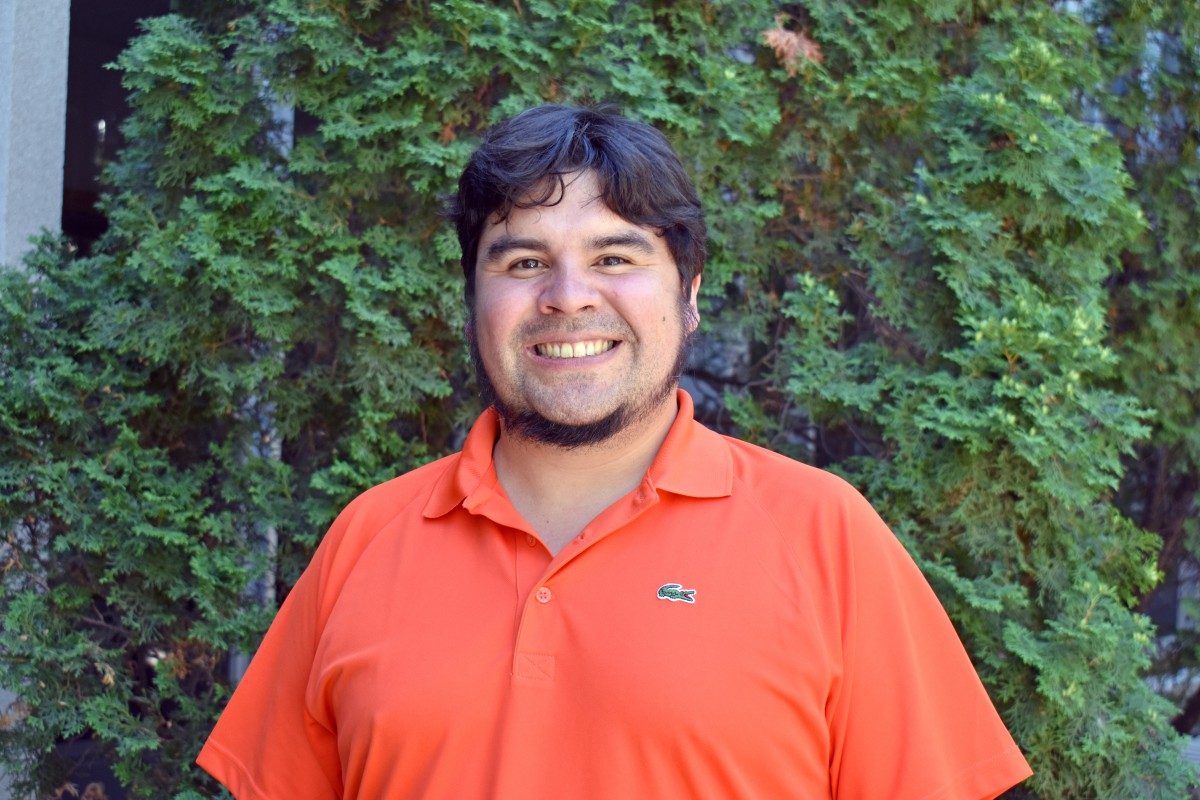
Dr. Kyle Bobiwash, Indigenous Scholar and assistant professor in the Department of Entomology, seeks to broaden students' understanding of food systems issues.
New course ponders Indigenous issues in food systems
The Faculty of Agricultural and Food Sciences has introduced a new course which explores the contemporary issues of Indigenous people associated with food systems and challenges students to tackle real-world solutions.
Dr. Kyle Bobiwash, assistant professor in the Department of Entomology, developed the three-credit course “Indigenous Issues in Food Systems” which is open to all University of Manitoba students and launched this term. The course gives students a greater understanding of how historical and present-day relationships between Indigenous people, the land and settlers has resulted in many of the current challenges in agriculture, health and nutrition.
Dr. Bobiwash was appointed as the Faculty’s first Indigenous Scholar in 2018. One of his objectives was the development of a course that would encourage greater participation of Indigenous people in agriculture as well as a better understanding of Indigenous issues as a whole for all students.
“My goal in crafting this course was not to simply be a historical review of Indigenous peoples and their relationship with colonialism and the land, but to ensure that students are able to potentially begin seeing their particular field through a lens incorporating Indigenous histories, ways of knowing and ethos.”
Throughout the course, students will learn the role of Indigenous agriculture and food globally, moving from pre-colonial America through European settlement and the displacement of Indigenous people. Topics will include policy and legislation, food security, health and nutrition, and food system activism today and into the future.
In addition to course lectures and guest speakers, students will also conduct analysis of academic and grey literature. Using the knowledge they acquire in the course, students must craft a project or grant proposal that tackles a food system issue facing Indigenous peoples.
“I have framed the grant proposal as a service to society. The goal is for the students to identify one food system issue affecting Indigenous people, and develop some intervention or program to alleviate the issue. I encourage students to choose something close to their hearts, their interests or within their field so that they can see how their work later in life has the ability to impact communities across Canada. I’m also anticipating that these projects will be publicly available at some point, so that we can begin creating a repository of foundational background work allowing communities to potentially take some of these ideas and incorporate them into real on-the-ground projects.”
Students work individually to identify a target issue and course of action to ensure community participation and funding, but come together with their classmates for peer review, collaboration and group work, allowing students to critique each other’s approaches.
Bobiwash says that in creating a new course, there is no “past tense”, that it is an ongoing process.
“As the course has been progressing I’ve scrapped entire lectures or modified them significantly to reflect the interests of the students, current events, recent publications, as well as the baseline knowledge of students in order to improve our ability to reach our personal learning goals as a team.”
Although the course is only nearing its mid-point, Bobiwash says so far it has been well-received.
“Some aspects of the course are daunting, as class discussions and group review of papers are frequent, requiring a lot of chutzpah to insert yourself into a particular discussion. My groups of students are also coming from across the entire Faculty, so I take care in making sure that topics extend out into their fields though not forgetting the course scale perspective and issues. But so far, it’s been pretty darn good.”






